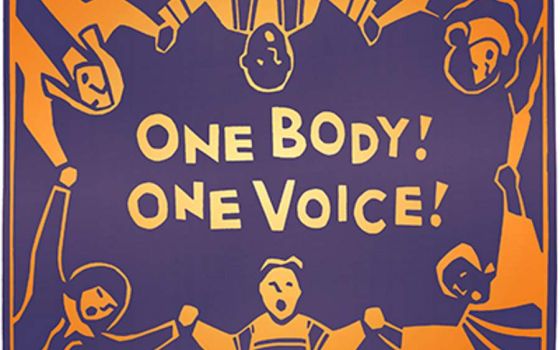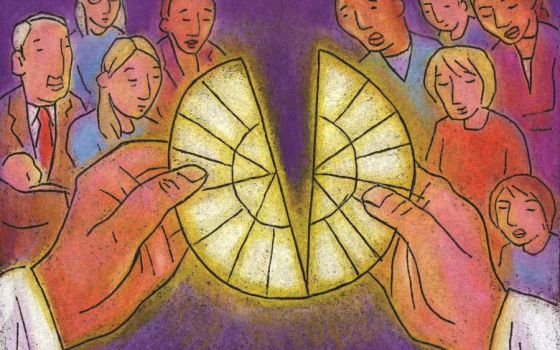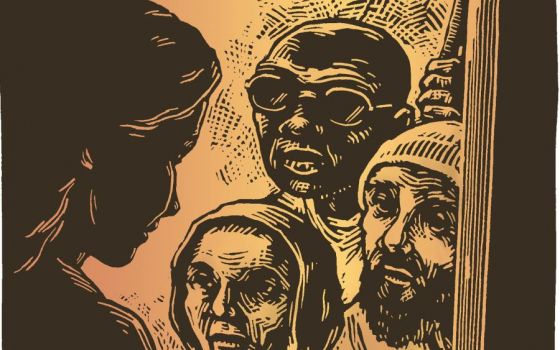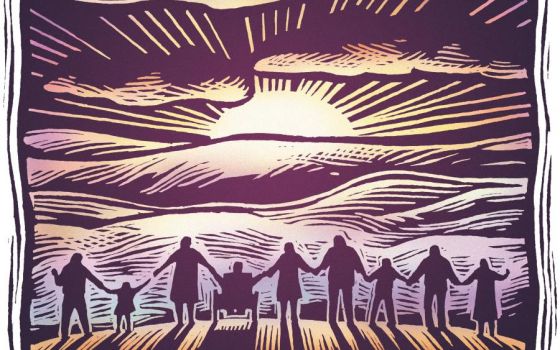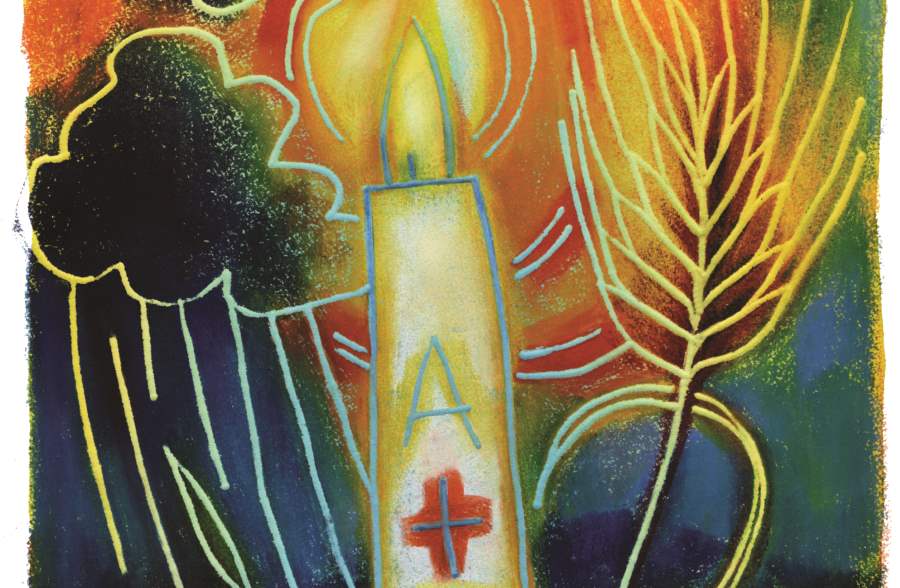
(Julie Lonneman)
If the cover art for this issue has prompted you to see if you can still do the familiar finger game, "Here is the church, here is the steeple; open the doors and out come the people," you are halfway home to Pentecost.
We are many members, but one Body, animated by one Spirit. Where Pentecost happens, community flourishes, because many gifts, coordinated and reconciled, make possible things that no one person could imagine or do alone. The feast of Pentecost is really a celebration of the triumph of community over the divisions created by selfishness, suspicion and sin.
Nature reveals both competition and cooperation. We often speak of Darwin's idea of the "survival of the fittest" as the law of nature, perhaps because this excuses so much human behavior. Yet, along with evidence of competition for territory and food, there also exist amazing synergies and symbioses in nature that sustain the seamless tapestry of life in our world. The peccary, a pig-like animal that forages on the floor of the Amazon forests, survives because monkeys in the canopy above strip the outer cover of tree nuts for their food, then drop them to the peccary, the only animals with jaws strong enough to crack open the nuts for their food. The monkeys also warn the peccary of the presence of jaguars, their only predator. It is as though animals are trying to teach humans how to survive through cooperation.
This past year I had my car stolen (one of the liabilities of the urban jungle we humans have fashioned for ourselves) and, instead of replacing it, I decided to take the city bus to and from work. To my surprise, I discovered a kind of natural community among the many riders on the bus, people who saw each other routinely, asked about each other, were concerned when someone was missing. The bus drivers were uniformly courteous, overseeing the needs of a city demographic I had lost touch with by driving to and from work in my car. Buses carried the working poor, men and women getting on and off at the big hotels in their uniforms, young mothers taking children to day care and school so they could head to work, the handicapped, and homeless people riding to get warm or to get downtown to help and healthcare agencies. Some riders were gregarious, others private, reading their books and papers, watching the city out the large windows. The atmosphere was relaxed, patient, even when the bus was crowded.
Only when I resumed driving did I realize that I had traded this affable community for the isolation of my car and the familiar defensive (and aggressive) mindset of the morning commute. With each advance in comfort and convenience, we lose touch with community and the collaborative spirit that often, in my experience, characterizes the lower end of the social spectrum more than the upper. Happiness eludes us when we succeed in securing the self-sufficiency the poor cannot afford.
Pentecost is meant to reconnect us. We need one another to be whole and happy with ourselves. When barriers are removed, gifts and needs find each other. The fingers of the hands, good for so much more than single-finger pointing or poking, work together naturally to work and play and make community. Grace recovers a law of nature and a way of life that seems to be what was originally intended.
The church born at Pentecost was supposed to model human cooperation, the full, coordinated use of each baptized member's gifts for the good of all. A less hierarchical church, more openness and transparency, an empowered laity are not concessions from authority, but the model Jesus left us and the way the Spirit works through us.
Advertisement
Peter Maurin, co-founder with Dorothy Day of the Catholic Worker Movement, once said that theologians and church officials had put a lid on the dynamic gifts that the church was supposed to share with the world. He said that it was time to "blow the dynamite" of the church's radical teachings about justice and human dignity in an oppressive world.
This, too, is the meaning of Pentecost. By promoting community we challenge the deeper social sins that divide us — racism, materialism and militarism, which deprive so many people of their basic rights and needs. Community challenges the logic of competition as necessary for survival. Hands that close tight form fists, prepare to fight. This has never ever worked, and it cannot be our vision or practice.
We are the church, God's loving hands in the world. These strong hands will heal a broken world. So open the doors and greet all the people.
Editor's note: This reflection was originally published in the May 2007 issue of Celebration. Sign up to receive daily Easter reflections.





